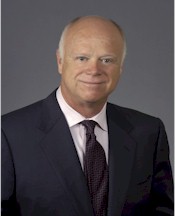|
|
|||||
|
Be Neutral |
|||||
|
Case Watch: For Arbitrators Recent Spreng Decision Highlights Federal Policy Favoring Arbitration The U.S. Court of Appeals for the Second Circuit recently handed down an important ruling interpreting portions of the Federal Arbitration Act (FAA) that deal with final determinations and rights of appeal. In Accenture LLP et al. v. Spreng, Docket No. 11-222 (May 27, 2011), the parties had entered into a transaction that included the purchase of a business and an employment agreement for the seller/owner. Both documents included arbitration clauses. Sometime after the sale of the business, Spreng, the former owner, was notified that his employment was terminated. He filed a demand for arbitration, claiming breach of contract and wrongful termination. After mediation and negotiation attempts extending over several month failed, an arbitrator was selected and a hearing was scheduled for October 19, 2010. During a discovery period Spreng had access to internal Accenture documents, and on October 12, he moved to amend his claim to add a new claim for fraudulent inducement. The arbitrator issued an order denying the motion. On October 14, Spreng filed a second demand for arbitration that included the original claims plus the fraud claim, and he withdrew the original demand “without prejudice.” Accenture filed an objection with the original arbitrator, who responded that the arbitration service provider had accepted Spreng’s withdrawal of his original demand and that he had no further authority over the matter. Accenture then asked the arbitration service provider to stay Spreng’s second arbitration. The service provider responded that it was without any power to stay the second arbitration absent the parties’ agreement or a court order. Accenture then filed with the district court to enjoin the second arbitration pending the district court’s resolution of Accenture’s claims that: (1) Spreng’s withdrawal of his first arbitration demand was a waiver of his right to file the second arbitration; (2) the arbitrator’s October order was an enforceable arbitration award subject to appeal; (3) Spreng had breached his contractual obligation to arbitrate; and (4) the original dispute should be remanded to the original arbitrator for a determination. The district court denied Accenture’s request for a temporary injunction and for a motion to stay, indicating that the arbitrator selected to handle the pending (second) arbitration could consider Accenture’s requests. The court also denied Accenture’s request for a stay pending a request for a permanent injunction. The district court did, however, allow a stay pending appeal to the Second Circuit, where Accenture again asked for an injunction and the right to file briefs. The appellate court denied the injunction, but granted an expedited appeal. On appeal, Accenture argued that: (1) the district court erred by not granting the preliminary injunction and restraining order; (2) Spreng’s withdrawal of his first arbitration demand was a waiver of his right to a second arbitration; and (3) the arbitrator’s October order denying Spreng’s request to amend was final and thus an enforceable arbitration award. The Second Circuit appellate court said that Section 16(b)(4) of the FAA restricts appellate jurisdiction over district court orders that refuse to enjoin arbitration. Quoting from an Eleventh Circuit decision, the Second Circuit court said:
[Accenture’s] argument has too much throw weight. Accepting it would write out FAA Section 16 (b)(4)’s clear command, because all orders, “refusing to enjoin an arbitration” are orders “refusing injunctions.” We don’t have the authority to excise specific statutory provisions.
The Second Circuit ruled that Section 16(b)(4) was specific and that it controlled over the general grant of appellate jurisdiction contained in 28 U.S.C. Section 1292(a) (1): “Recognizing this jurisdictional bar respects the ongoing arbitration and is in accord with our well established view favoring arbitration.” The Second Circuit also rejected Accenture’s claim that the arbitrator’s October order denying Spreng’s request to amend was final and thus appealable:
A final decision is one that “ ‘ends the litigation on the merits and leaves nothing more for the court to do but execute the judgment .’ ”… It matters not how Accenture characterizes the district court’s order; it is clear that it was not a “final decision with respect to an arbitration. … It is clear that the dispute below remains open, albeit stayed. As a result, the district court’s decision was not final; we lack jurisdiction over the appeal.
The court stated that the October order was not a final adjudication of a claim on the merits. The October order did not qualify as an arbitration award because “it does not finally and definitely” dispose of Spreng’s fraud claim:
The arbitrator did not rule on the substance of Spreng’s proposed amended claims. Rather, he made a procedural ruling that denied Spreng leave to amend. For purposes of our review the October Order was an interim procedural ruling, not an arbitration award.
and
While an arbitrator may grant interim relief as an “interim award,” the interim award must “finally and definitely dispose[] of a separate independent claim.
The bottom
line for Georgia arbitrators is that in FAA-controlled arbitrations: (1) a
procedural ruling by the arbitrator is not appealable; and (2) if the
district court fails to grant an injunction to stay the arbitration, the
federal appellate court has no jurisdiction to change that ruling based on
the federal policy favoring arbitration going forward.
|
|||||

